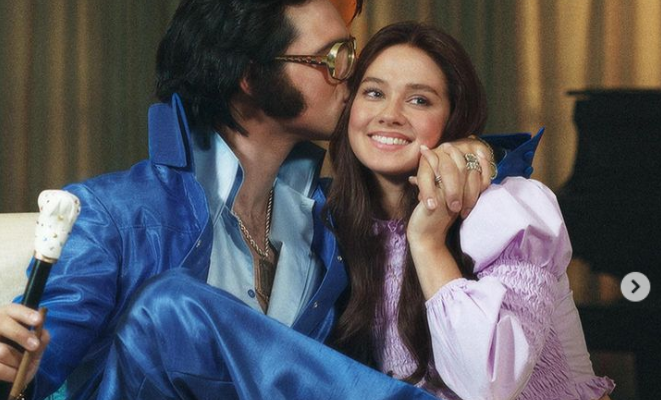It seems to be the year of the Presleys.
In 2022, the film world was buzzing after the release of “Elvis” starring Austin Butler and Tom Hanks as the feature led to countless nominations and wins from the Academy Awards, Golden Globes and other critically acclaimed competitions.
This past month, however, Butler’s stardom has been pushed to the side as the new story of “Priscilla” debuted in theaters. Rather than glamorizing the star that so many music fans adored in the 60s, this new perspective opens the door for us to analyze his long-term partner instead.
I went into the theater with somewhat average hopes. On the positive side, my expectations for Sophia Coppola who served as the director and Jacob Elordi who was cast as Elvis were set pretty high. Yet, up until the film’s release, I hadn’t heard much about the feature. While the cast was unable to promote the feature due to the SAG-AFTRA strike, there still seemed to be little to no marketing in terms of content compared to last summer’s blockbuster.
Throughout the entire movie, I couldn’t help but have a silly grin on my face as I watched Elvis and Priscilla’s (Cailee Spaeny) romance blossom. This, I believe, is directly attributed to the performances rather than the story considering how heavy their lives were.
As Priscilla Presley served as the production’s Executive Producer, she made sure that the screenplay was very open about how abusive the two lover’s relationship was. The bond began when Elvis was drafted during the Cold War and was placed in Germany—where he met Priscilla when she was 15 and he was 24.
Elvis had formed a connection with her due to his overwhelming homesickness since she was an American, whereas Priscilla was in awe of his fame. Despite the age difference, long distance and lack of communication the couple still managed to stay together. Priscilla left her school in Germany and moved into Graceland, waiting for him to return from his movie shoots and tour dates.
Priscilla was homebound and alone as she never left the Presley estate. While she saw him more on the covers of magazines where rumors of him and other celebrities were in a relationship or even engaged, she still waited for him. Ultimately he proposed that they got married and had their baby, Lisa Marie.
At times, it was hard to watch. Between the mental and physical abuse Priscilla endured, the movie itself felt slow in its pacing—which is to be expected. It’s hard to sit in the theater and watch a girl basically sit in the living room trying to pass the time until her lover returns.
I felt it also lacked character development as Spaeny remained soft-spoken even over the course of the 10 years she aged. While the movie is based on a real story where Priscilla believed she had no voice, I wanted to witness some sense of growth before the final scenes in which she leaves him.
Overall, I somewhat enjoyed the movie. I think the production design nailed the costumes and set. The score matched the period and tone perfectly and even played a majority of my “liked” songs on my 60s playlist. And the acting was phenomenal, particularly for Elordi—I would be shocked if he isn’t nominated for Best Supporting Actor.
I understand that Priscilla Presley wants the world to know her side of the story, but at the same time, I feel like she can only say so much before it starts to look like she’s trying to hold on to the fame that her late ex-husband gave her. The story is eye-opening for those who were ignorant of her abuse, but stands to be nothing new.


Leave a Reply